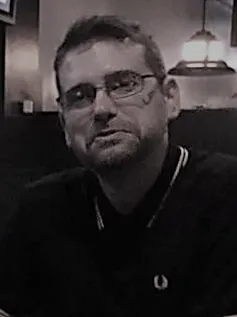A couple people had expressed interest in this topic, and I have a bit of extra time for a couple days, so here goes:
Bona fides: I am a former infantry NCO and sniper, hunter, competitive shooter, reloader, hobby gunsmith, sometimes firearms trainer and currently work in a gun shop, mostly on the paperwork/compliance side. Back in the day, was a qualified expert with every standard small arm in the US inventory circa 2003 (M2, 4, 9, 16, 19, 249, 240B, 21, 24, 82 etc.), and today hang around the 75th percentile of USPSA classifications. I've shot Cap-and-Ball, Trap and Sporting Clays badly; Bullseye and PRS somewhat better and IDPA/USPSA/UML/Two-gun with some local success. Been active in the 2A community since the mid-90s, got my first instructor cert in high school, and have held a CPL for almost twenty years now.
I certainly don't claim to be an expert in every aspect of firearms, there's huge areas that escape my knowledge base, but if you've got questions I'll do my best to answer.
Technical questions
Gun control proposals for feasibility
Industry
Training
Wacky opinions
General geekery
Some competition links (not my own) just for the interested.
https://youtube.com/watch?v=U5IhsWamaLY&t=173
https://youtube.com/watch?v=93nEEINflXE
https://youtube.com/watch?v=utcky0zq10E


Jump in the discussion.
No email address required.
Notes -
Someone suggested to me they believed switching from revolvers to pistols in the police force was a mistake, that having fewer, higher caliber bullets ready to shoot had a psychological effect on police officers that translated to fewer missed shots, fewer bystander fatalities, and more deliberate, accurate shooting on behalf of the officers.
I've never been able to find any concrete data on this, and I'm not sure if it's true or just something the person made up after watching Dirty Harry.
Not helpful in your case exactly; but I did see some study or other that found normal highway patrol and cops would often shoot until the gun went click; hence all the news stories of dudes getting shot 9 more times after the first 4 killed them.
I was under the impression that’s intended. It’s not trivial to assess whether a crumpled person is dead, wounded, or just panicking. Assuming lethal force is already started, I’m not sure holding back benefits the officer at all.
Whether or not this significantly threatens bystanders is a different question. My gut feeling is no, the scenario matters much more, and I’d guess police shootings are usually not too crowded. But I don’t actually have stats to back that up.
This may be a factor, but the biggest one is just adrenaline panic. People in life-or-death situations tend to use their tools as much as possible.
Plus, there's a "rattlesnake" aspect to this. A lot of gunfights are between people who don't seem to be trying to kill each other so much as scare each other by making lots of loud noises in their general direction. Panic-pulling the trigger is extremely common, even for cops. Often people have little recollection of how many times they fired.
Right. Not going to argue with that; just observing that institutions have little to no incentive to fight it (via training).
I'm skeptical training can much reduce it. We had "three to five round burst" for belt-feds drilled into us in training, but all that goes right out the window when the stress level ramps up. Most guys would rock out twenty-to-fifty round bursts.
Personal opinion, adrenaline panic is a psychological thing inherent to the person, and can't be moved much by training. It can be improved marginally, but not enough to warrant a lot of time and effort. It's better spent figuring out which people don't have it, and training them.
More options
Context Copy link
More options
Context Copy link
More options
Context Copy link
More options
Context Copy link
More options
Context Copy link
More options
Context Copy link